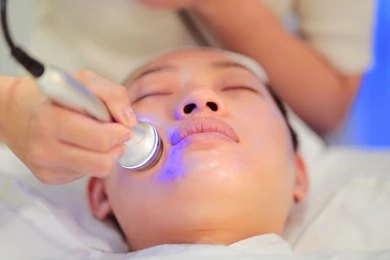Healthy, glowing skin is often considered a reflection of overall well-being. Our skin is the body’s largest organ and acts as a barrier against environmental factors, so taking good care of it is essential not only for aesthetic reasons but also for maintaining optimal health. However, skin problems can arise at any time, and knowing when to seek expert advice can make a world of difference. While a basic skincare routine can address many minor skin concerns, certain conditions require the expertise of a professional skin specialist.
If you are looking for advice on when to see a skin specialist, particularly when dealing with persistent or severe skin issues, this guide will walk you through common signs that signal the need for professional help. Whether you are dealing with acne, rashes, or signs of aging, understanding when to consult the best skin specialist in Gurgaon can ensure that you receive the right treatment for your skin type and concerns.
1. Persistent Acne or Breakouts
Acne is one of the most common skin conditions, affecting people of all ages, particularly teenagers and young adults. While occasional breakouts are normal, persistent acne—especially if it’s painful, cystic, or inflamed—can significantly impact your appearance and self-esteem. Over-the-counter treatments may not always be effective for severe acne, and trying harsh products or picking at your skin can lead to scarring.
If your acne persists despite your efforts to treat it with topical products, or if you notice it worsening or becoming painful, it’s time to see a skin specialist. A professional will assess the root cause of the acne, whether it’s hormonal, dietary, or related to other underlying factors, and provide a tailored treatment plan. Options may include prescription topical medications, oral antibiotics, retinoids, or even procedures like chemical peels or laser therapy, depending on the severity of the condition.
2. Unexplained Skin Rashes or Eruptions
Skin rashes can be triggered by various factors, such as allergies, infections, irritants, or autoimmune diseases. If you experience an unexplained rash that doesn’t resolve after a few days or is accompanied by swelling, blisters, or other symptoms like fever, it’s important to seek professional help. Some rashes may indicate more serious conditions, such as eczema, psoriasis, or even infections like impetigo or fungal infections.
A skin specialist will be able to diagnose the rash’s cause and recommend the appropriate treatment. They may also offer guidance on managing triggers or sensitivities that could be exacerbating the condition. Early diagnosis and treatment can help prevent the rash from worsening or spreading.
3. Persistent Itching or Dryness
Dry, itchy skin is a common problem, especially during the colder months or in areas with low humidity. While moisturizing and using gentle skincare products can help alleviate dryness, persistent or chronic itching could indicate a skin condition that requires professional care. Conditions such as eczema, dermatitis, or allergic reactions often cause severe dryness and itching that doesn’t improve with home remedies.
If over-the-counter lotions and creams aren’t providing relief, or if the itching is constant and interfering with your daily life, it’s time to consult a skin specialist. A dermatologist can prescribe specialized creams or ointments that can help soothe the skin and provide relief from itching. Additionally, they can assess the underlying cause of the dryness and provide a comprehensive skincare plan to address your skin’s needs.
4. Hyperpigmentation and Uneven Skin Tone
Dark spots, sun damage, and uneven skin tone are common skin concerns that many people face. While these issues can often be caused by sun exposure, hormonal changes, or acne scars, they can be frustrating to manage on your own. Over-the-counter products claiming to brighten the skin often take time to show results, and some can be too harsh, causing further irritation.
If you’re dealing with persistent hyperpigmentation or uneven skin tone, it’s a good idea to see a skin specialist who can evaluate your skin type and recommend treatments that are both safe and effective. A professional might suggest topical treatments like vitamin C, retinoids, or prescription-strength hydroquinone, or in-office procedures like chemical peels, laser therapy, or microneedling, which can target and reduce dark spots, giving you a more even and radiant complexion.
5. Unusual Moles or Skin Growths
Changes in the appearance of your skin, especially in the form of new moles, growths, or changes to existing moles, can be a cause for concern. Skin cancer is a serious condition, and early detection is key to successful treatment. A mole that changes shape, size, color, or texture may indicate a potential risk of melanoma or other forms of skin cancer.
If you notice any new growths or changes in your existing moles, it’s important to see a skin specialist as soon as possible for an evaluation. They can perform a skin examination, offer a biopsy if necessary, and provide guidance on the best course of action. Regular self-checks of your skin are important, but it’s also essential to have professional check-ups for peace of mind and early detection.
6. Excessive Hair Loss or Thinning
Hair loss can affect both men and women, and while it’s normal to lose a small amount of hair each day, excessive hair shedding or noticeable thinning is often a sign that something isn’t right. Factors like stress, hormonal imbalances, diet deficiencies, and underlying health conditions can contribute to hair loss. Conditions like alopecia areata or scalp infections can also cause patches of hair loss that may require medical intervention.
If you notice significant hair loss or thinning that’s affecting your confidence or appearance, it’s a good idea to consult a skin specialist. They can determine the cause of your hair loss through a thorough examination and offer treatment options. Depending on the diagnosis, your doctor may recommend topical treatments, oral medications, or even advanced procedures like platelet-rich plasma (PRP) therapy or hair restoration treatments to help stimulate hair growth and reduce shedding.
7. Wrinkles and Fine Lines
As we age, wrinkles and fine lines are inevitable, but some people may notice these signs of aging appearing earlier than expected. While facial wrinkles and crow’s feet are a normal part of the aging process, premature wrinkles or deep lines can be bothersome. The good news is that there are many cosmetic treatments available to reduce the appearance of wrinkles and improve skin elasticity.
If you’re concerned about wrinkles, fine lines, or loss of skin firmness, a skin specialist can guide you on the most suitable treatments for your skin type. They may recommend anti-aging treatments like Botox, dermal fillers, chemical peels, or even laser treatments that stimulate collagen production, helping to restore a youthful, glowing appearance.
8. Acne Scars and Post-inflammatory Hyperpigmentation
While acne can be a temporary issue for many people, the scarring and pigmentation left behind can often be long-lasting. Even after the acne itself has cleared up, scars and dark spots can remain, making it difficult to achieve a clear complexion. Post-inflammatory hyperpigmentation (PIH) is also common, where the skin darkens in response to inflammation or injury.
A skin specialist can help treat these scars and hyperpigmented areas with targeted treatments. Options such as laser resurfacing, microneedling, chemical peels, or even prescription-strength topical treatments can help fade scars and restore your skin’s appearance.
9. Sunburn or Sun Damage
Exposure to the sun’s harmful UV rays is the leading cause of premature aging and increases the risk of developing skin cancer. While many people use sunscreen to protect their skin, prolonged sun exposure can still result in sunburn, age spots, and damaged skin. Sunspots, fine lines, and wrinkles often appear on areas of the skin that have been exposed to the sun over time, especially the face, neck, and hands.
If you’re concerned about sun damage or sunburn that doesn’t heal, it’s essential to visit a skin specialist. They can assess the extent of the damage and provide treatments that can improve skin texture and even out skin tone. Depending on your needs, a dermatologist may suggest laser treatments, chemical peels, or other procedures to help reverse the effects of sun exposure and promote healthier skin.
10. Excessive Sweating or Body Odor
Excessive sweating, or hyperhidrosis, can be both embarrassing and uncomfortable. While sweating is a natural process, some people experience excessive sweating without any obvious cause, which may affect their quality of life. In some cases, this can be linked to underlying conditions, including infections, hormonal imbalances, or neurological disorders.
Similarly, persistent body odor that doesn’t improve with regular hygiene may be a sign of an underlying condition, such as bacterial or fungal infections. A skin specialist can help diagnose the cause of excessive sweating or body odor and recommend treatments, including prescription-strength antiperspirants, medications, or even minimally invasive procedures like Botox injections for hyperhidrosis.




